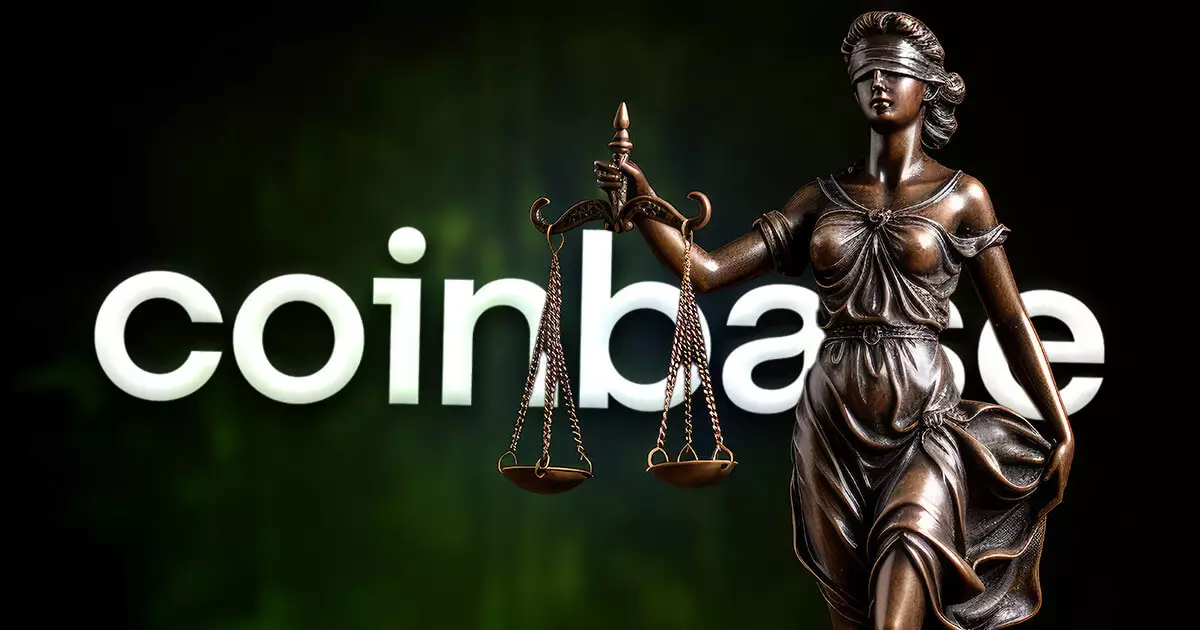The cryptocurrency landscape is constantly evolving, with players maneuvering for market leadership in an environment characterized by fierce competition and rapid innovation. Dec. 13 marked a significant turning point in this narrative as BiT Global, a crypto custodian affiliated with Justin Sun, initiated legal proceedings against Coinbase. This lawsuit encapsulates not only a clash between two major entities in the crypto sphere but also raises broader questions about market competition, anti-competitive practices, and the viability of decentralized finance (DeFi) innovations.
BiT Global’s lawsuit centers on allegations that Coinbase unfairly delisted Wrapped Bitcoin (WBTC), a popular token representing Bitcoin on the Ethereum blockchain. According to their filing, BiT Global contends that Coinbase’s actions were not borne from legitimate operational considerations, such as adhering to listing standards, but rather from a strategic move to bolster its proprietary product: Coinbase Wrapped Bitcoin (cbBTC). This accusation taps into the heart of antitrust laws which are designed to prevent monopolistic behaviors and ensure fair market practices.
The charge of anticompetitive behavior is particularly significant given Coinbase’s position as the largest cryptocurrency exchange in the United States. By replacing WBTC with cbBTC, BiT Global argues, Coinbase is leveraging its market dominance to stifle competition. Such a narrative not only questions Coinbase’s ethical standing in the marketplace but also highlights larger systemic issues within the cryptocurrency sector, where regulations and governance structures remain inadequate, leaving potential loopholes for manipulative practices.
Digging deeper into BiT Global’s court filing reveals various points of contention that underscore the alleged malfeasance. The filing suggests that Coinbase’s monopolistic tendencies are evident in its strategic removal of WBTC to favor cbBTC, thereby anticipating a future spike in transaction fees associated with their in-house offering. This contention serves to illustrate a fundamental paradox in the modern crypto ecosystem: the tension between fostering innovation and succumbing to the allure of monopolization.
Moreover, BiT Global disputes Coinbase’s rationale regarding the removal of WBTC, highlighting the inconsistency in Coinbase’s listing practices. The inclusion of meme coins such as PEPE and MOG — which many industry observers would argue lack substantial utility compared to WBTC — raises questions about Coinbase’s true motives. If a platform can justify the presence of meme coins on the basis of follower interest or speculative trading, then the claim that WBTC was excluded due to lack of quality appears disingenuous.
This lawsuit transcends the immediate conflict between BiT Global and Coinbase; it also signals larger, industry-wide implications. The removal of WBTC not only adversely affects liquidity in decentralized markets but poses a wider threat to the cornerstone of decentralized finance: competition. The ability to maintain a diverse ecosystem of wrapped assets is imperative to support the various DeFi protocols that rely on them for collateral, lending, and trading functionalities.
BiT Global’s objectives through this legal battle are twofold: to reinstate WBTC’s position in the market and to ensure that innovative decentralized entities are not quashed by prime players in the space exercising their market power. The outcome will not only dictate the fate of WBTC but could potentially shape policies and practices moving forward, ensuring that competition thrives rather than succumbs to centralization driven by a profit motive.
The narrative surrounding wrapped assets has shifted as crypto markets mature. Following a tumultuous year for WBTC, characterized by governance shifts and regulatory scrutiny, responses have varied from market participants. While firms such as Coinbase have subsequently launched their own wrapped Bitcoin products, BiT Global’s core argument emphasizes the need for a competitively healthy environment. The landscape is such that while cbBTC has emerged successfully as a major player, WBTC’s stature and its $13.7 billion market cap reflect an enduring demand. The ongoing dilution of WBTC’s supply, however, highlights vulnerabilities stemming from broader market dynamics and investor sentiment.
In closing, the lawsuit brought forth by BiT Global against Coinbase exposes critical issues at the intersection of competition and innovation in the cryptocurrency sector. As the lawsuit unfolds, it presents an opportunity for introspection within the industry, urging stakeholders to reconsider the balance between market share and the fundamental principle of equitable access that fosters a burgeoning decentralized economy. The stakes are high, and the outcomes could set significant precedents for the future landscape of cryptocurrency trading and governance.

